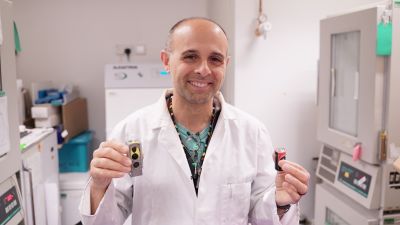Cambridge scientists use algae to power a computer continuously for a year

Scientists have used algae to power a computer continuously for a year.
Researchers at University of Cambridge believe it could be a reliable and renewable way to power small devices in the future.
The system is similar in size to an AA battery and contains a non-toxic species of blue-green algae called synechocystis which naturally harvests energy from the sun through photosynthesis.
They said the system was made of common, inexpensive and largely recyclable materials.
"This means it could easily be replicated hundreds of thousands of times to power large numbers of small devices ," the team said.
Prof Christopher Howe, of the University of Cambridge's department of biochemistry, added : "Our photosynthetic device doesn't run down the way a battery does because it's continually using light as the energy source."
In the experiment, the device was used to power an Arm Cortex M0+, which is a microprocessor used widely in Internet of Things devices.
Cambridge-based microprocessor design company Arm collaborated with the Cambridge researchers on the project.
Dr Paolo Bombelli, of the University of Cambridge's Department of Biochemistry, said: "We were impressed by how consistently the system worked over a long period of time - we thought it might stop after a few weeks but it just kept going."
Want a quick and expert briefing on the biggest news stories? Listen to our latest podcasts to find out What You Need To Know